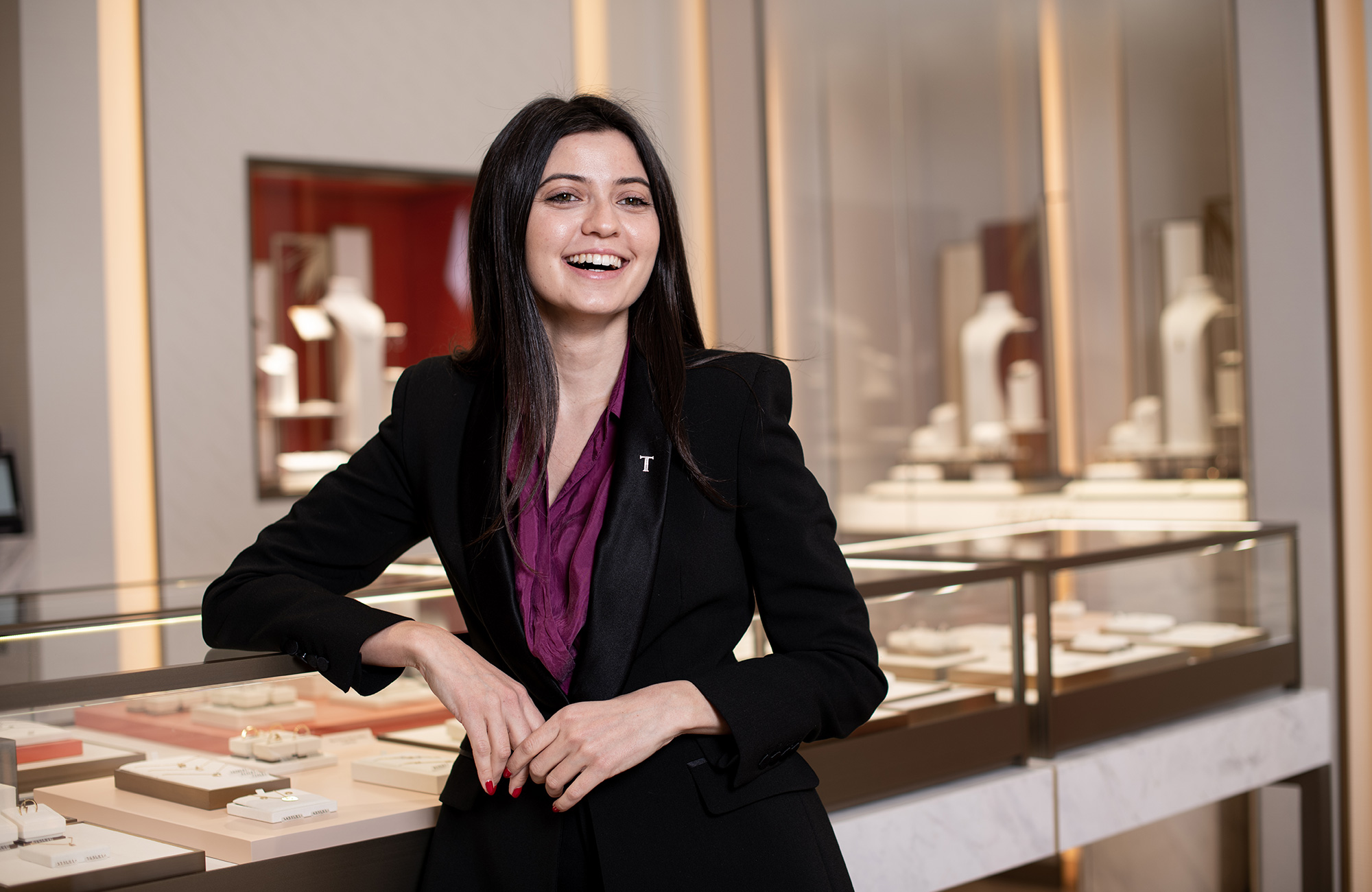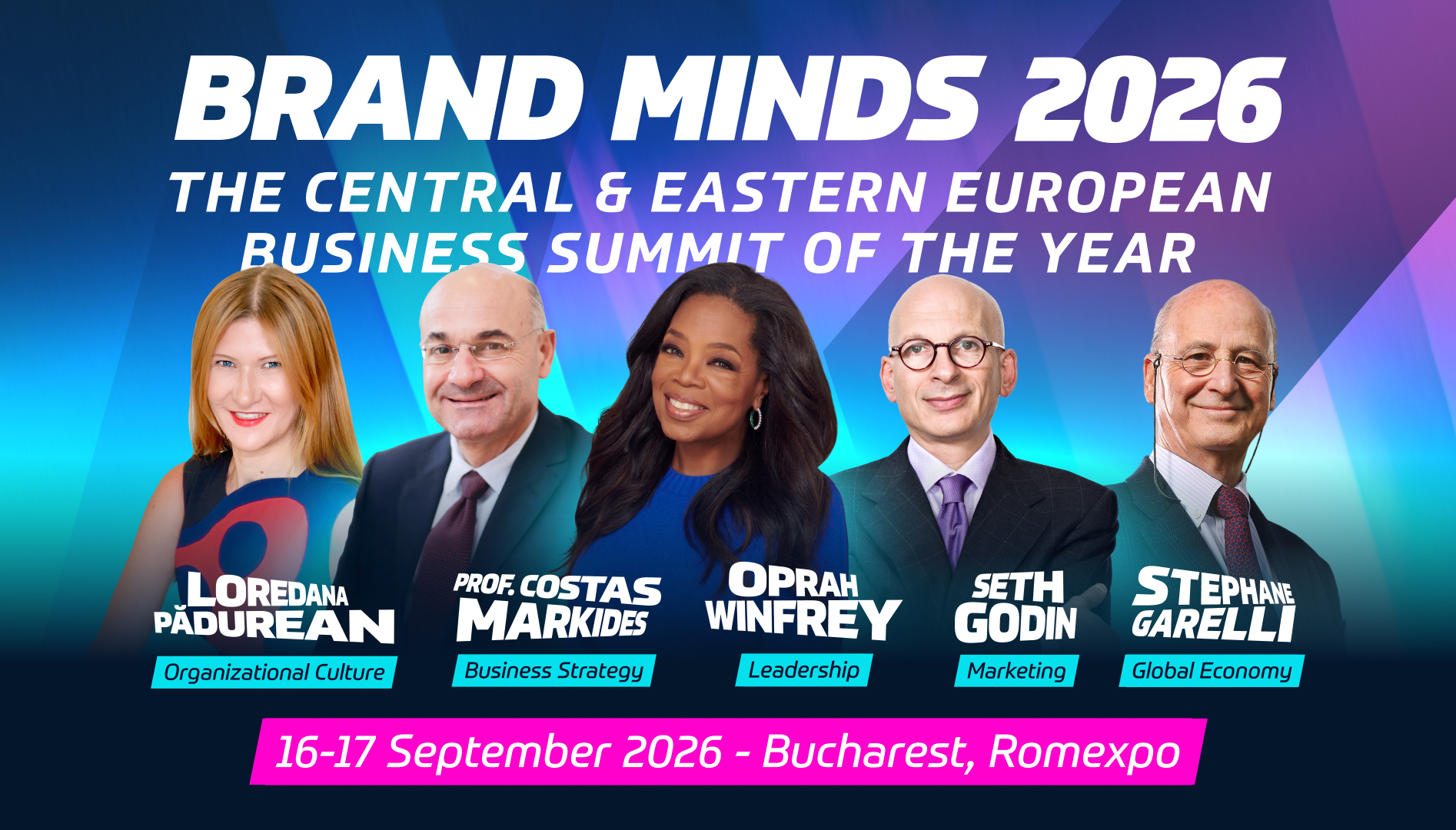Sergiu Neguț is the co-founder of Fintech OS, an innovation acceleration technology designed for the financial sector.
The company combines cutting-edge digital technologies, AI and a powerful financial core to reshape customer experience of banking and insurance companies worldwide.
To date, Fintech OS has raised a total of $16 million in funding and is the first Romanian start-up to be accepted in the global accelerator program of Microsoft UK.
With an annual growth of 450% in 2019, CB Insights Report ranked Fintech OS among the most well-funded tech startups in Europe.
In 2018, the company was named The Fintech of the Year within the Financial Market Gala Awards organized by Finmedia group and the winner of the Hottest FinTech award in The Europas Tech Startup Awards 2020.
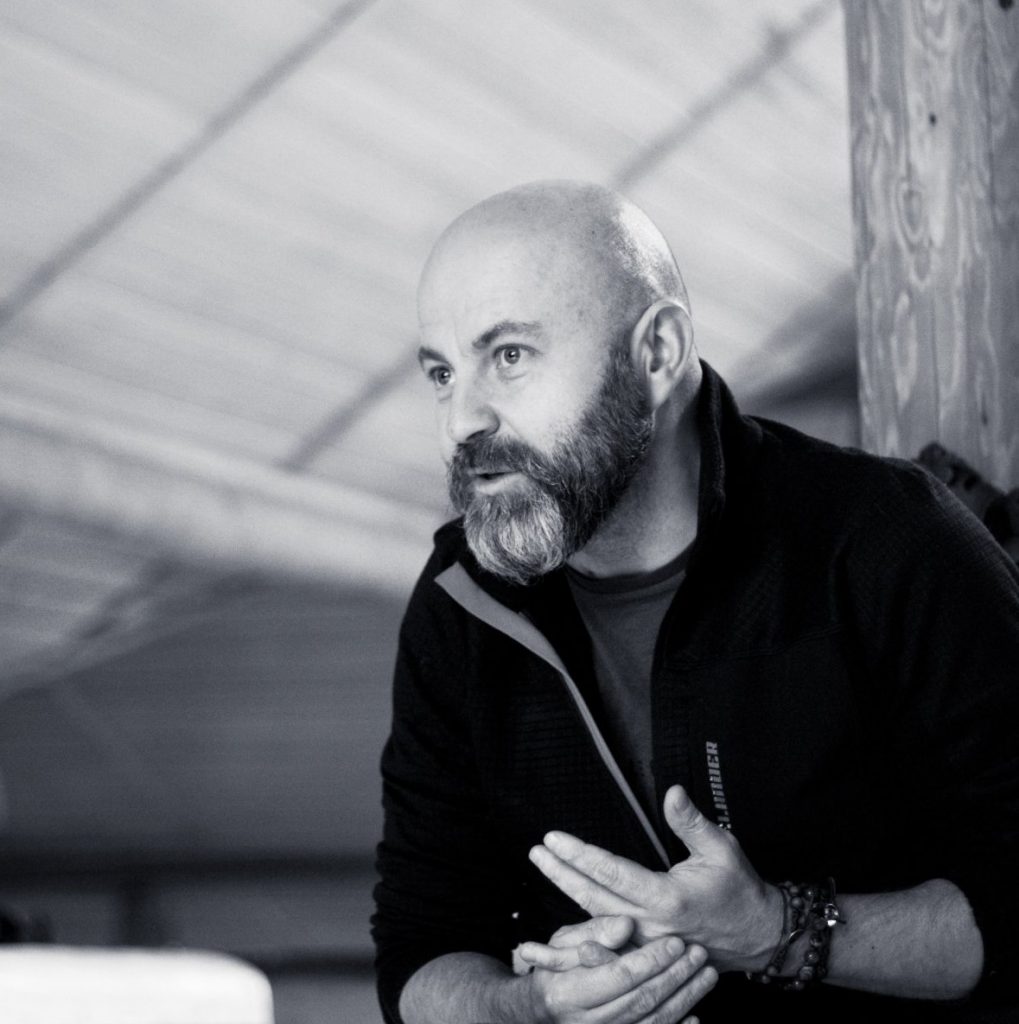
Sergiu Neguț, co-founder & EVP Fintech OS
Here is my interview with Sergiu Neguț.
1. You are an angel investor. What do you look for in a startup? Name three boxes that startups should check before you invest in them.
It is difficult to check only three boxes. Investing is not a rational process where you have a mandate to invest a certain amount of money therefore everything that gets a particular profile gets invested.
It’s actually the other way around. It’s a combination of availability and believing all planets have aligned, that’s when you actually invest.
That being said, having the following three points covered is very important:
1 – An amazing team. A team that has the experience, business maturity and the full understanding of the market.
2 – Market opportunity. That’s when you understand that the market is growing, there is a niche that would profit from an investment, and would materialize into something valuable.
3 – You can see a route to exit. This means firstly the founders are willing to exit the business at some point and secondly, somewhere in the universe, there are some organizations, be there investment funds or strategic players, that, under certain circumstances, when the business you have invested in has grown enough, would acquire it. Thus ensuring a route to exit for your money.
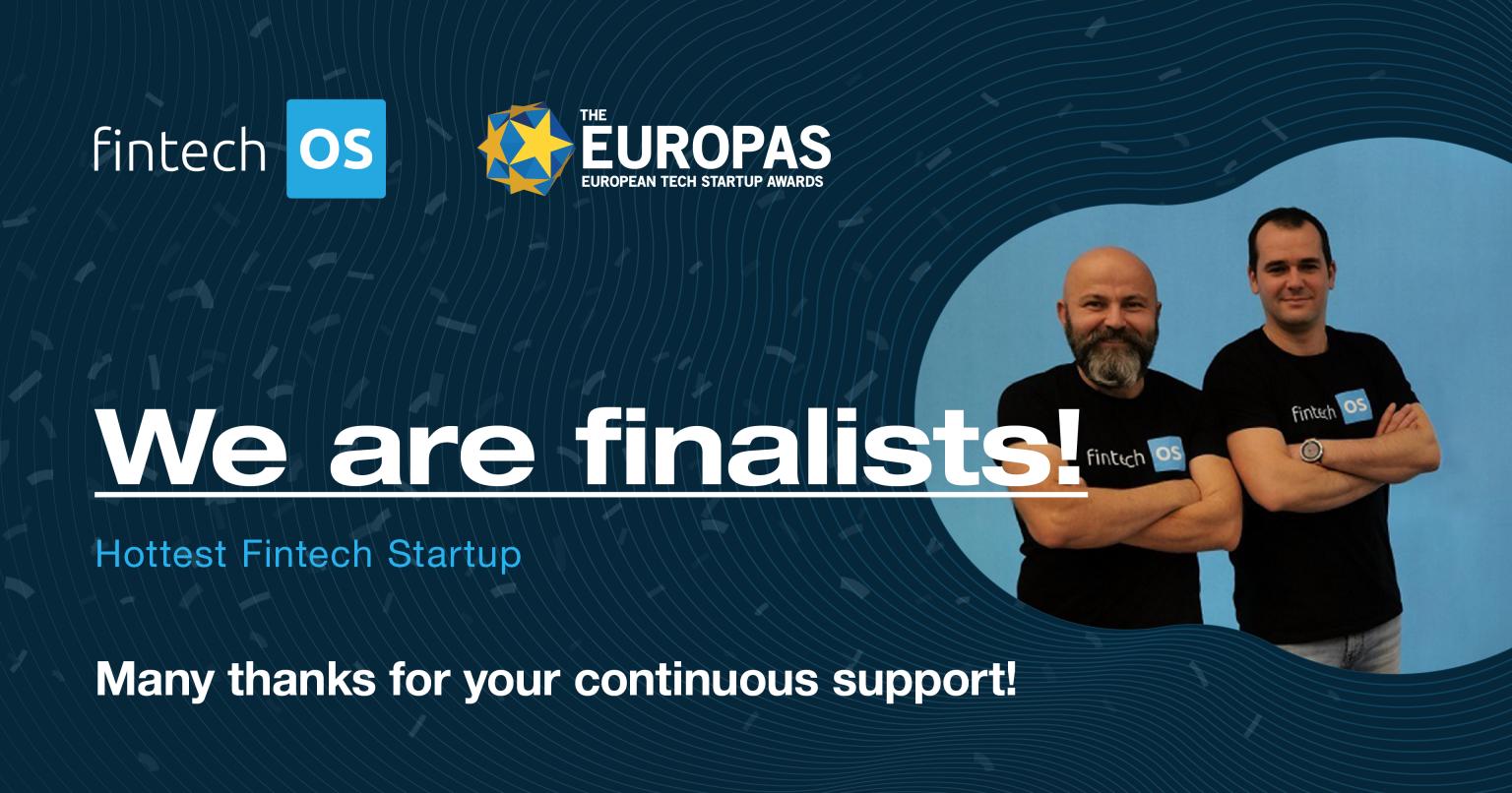
Fintech OS founders Sergiu Negut and Teodor Blidarus
2. What is your advice for entrepreneurs looking to grow their business?
Growing a business is a wide-ranging topic of discussion. I actually teach a 3-day course on growing a business at the Maastricht School of Management Romania.
In my opinion, growing your business is more of an art than of science. Taking your business to the next level relies upon understanding where similar customers to your existing customers would be. And where products similar to your current line of products would be and how you can transition your company from your existing clients to future clients and from existing products to future products.
You would also need to make this shift with minimum resources or with the most rational allocation of resources. How can you do that? By mobilizing your internal resources and borrowing resources from partners in a way that gives you maximum return on investment.
I know it sounds very abstract, but it’s important that entrepreneurs focus on finding answers to this question: What else can I sell to my current clients? What else can I build aside from my current products? Whose resources can I use if not only mine? If you filter all that through the resources and capabilities you have, in other words, know what makes you competitive to your current clients, then you probably have a good idea of the rationale behind your development, your business’s growth. And that’s not all.
If you see your business growth through sales and partnerships alone – that’s a limiting perspective. Sometimes you can raise additional capital and rely upon that. Sometimes you can integrate additional innovation and rely upon that. Other times you can partner with more people and rely upon them. You can expand your business with a board of advisors and rely upon the advice and connections your advisors provide. So you see, it’s not something you can easily place in a small box and grow from there. It’s a continuous process that requires focus, energy and advice from others.
[bctt tweet=”Fintech OS co-founder Sergiu Negut: Don’t limit the growth of your business by focusing on sales and partnerships alone. ” username=”brand_minds”]
3. Technology or Culture – which is more successful in driving change?
A market is never disrupted by technology. Technology is a mere transformation of a market.
Disruption comes from changing patterns, behaviours, and business. So is technology able to go viral and create an avalanche of changes in the individual behaviours of all market participants? And if that is so, is there an ecosystem where such change can propagate? This is what you need to have in mind.
Technology is creating a context. Culture is what drives the process because change happens only when you have built the momentum internally. Desire to ignite and continue the change based on technology needs also to be present. So, yes, it’s both, but in a way, neither of them is determinant for the change per se. It’s not only technology and it’s not only culture. It’s not even technology and culture alone. It has to be a market situation and an environmental context that allows for successful change.
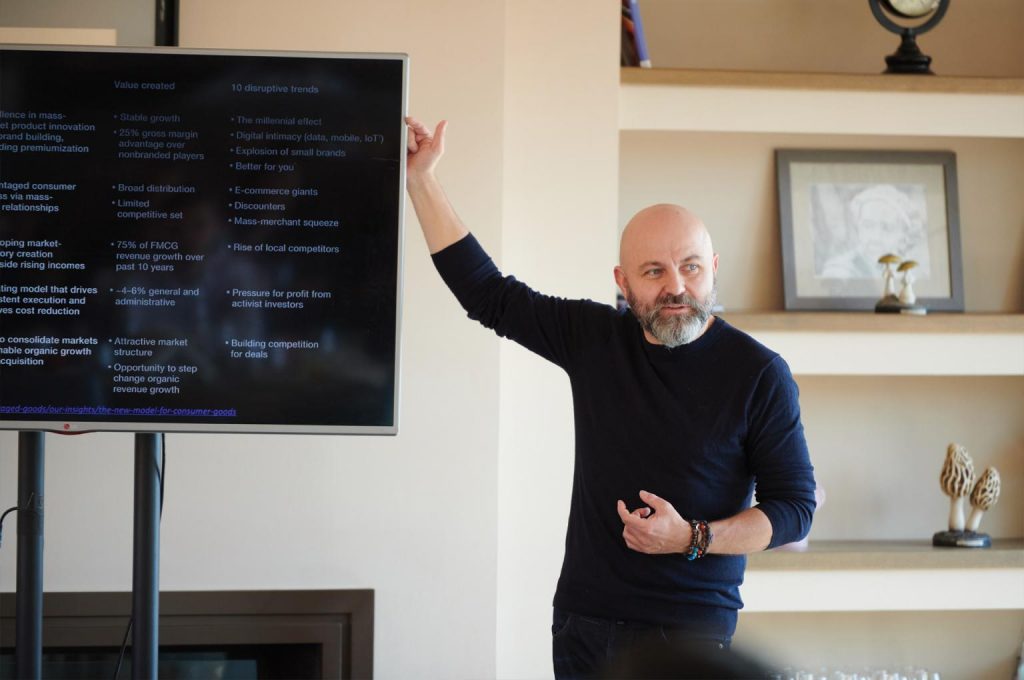
image source: Sergiu Negut LinkedIn
4. What challenges did you face while developing Fintech OS?
Growing a company that is VC-backed is an amazing process. It’s a continuous race at a breathtaking speed.
You need to catch up with the company that you want to be 12 months in the future while dealing with the company that you are now at a growth rate that exceeds 200% YoY. This is quite difficult to achieve, and the challenges are equally difficult.
At any given time, the ability to grow the team at speed while maintaining the company culture is challenging.
Add the ability to extract value from a rapidly growing team that is not fully integrated and the ability to communicate into the market with the goal of igniting a demand that grows as fast as you need it to in order to raise capital.
And on top of that, you have the challenge of continuously raising capital. Convincing your investors that not only is your company good enough the way it is but also that the big dream you are building for is a dream worth betting on, from their point of view, is not a small feat.
[bctt tweet=”Fintech OS co-founder Sergiu Negut: Growing Fintech OS has been a continuous race at a breathtaking speed.” username=”brand_minds”]
So all of the above are real challenges. And every time you see a small disruption in your plan, every time you are failing one quarter or experience an unprecedented situation like what we are going through now with COVID-19, there is a distortion in your market, a change of plan, a change in your forecast, a new scenario you need to build on and adapt to.
This is never easy. But, in our defence, it is extremely fun and motivating, the learning curve that you get by doing that is amazing. The team of people we have created at FintechOS is absolutely fantastic. It’s worth every effort and every challenge that we have and will be facing.
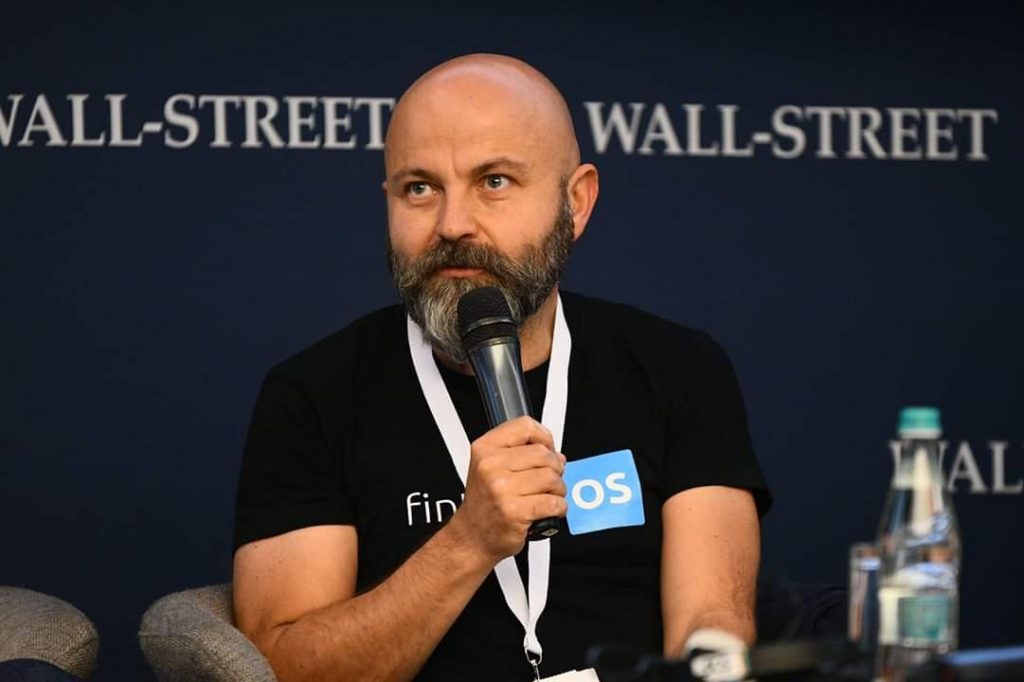
image source: Sergiu Negut LinkedIn
5. Last year you climbed Mont Blanc, the highest peak in Europe. Which is harder: going up Mont Blanc or managing people?
Managing people by far. Going on one of those trips, where you try to do something new and test your physical and mental limits is a way for you to evolve as an individual. But I would argue that nothing of that sort prepares you for the big challenge of managing people.
Managing people is not about you, your performance or finding your way. It’s about them, the people, their aspirations and goals, it’s about finding alignment and responding to crises. It’s not always about giving but sometimes taking and doing that with a decent level of humbleness, realism and trustworthiness, which is difficult to build and easy to lose. So definitely the biggest mountain that you could climb is building long-lasting confidence with people and managing them well.
[bctt tweet=”Fintech OS co-founder Sergiu Negut: Managing people is not about you, it’s about their aspirations and goals.” username=”brand_minds”]
6. There are various leadership styles ranging from authoritarian to servant, visionary to coaching etc. What is your leadership style?
I wish I were more balanced but the reality is I have never been an authoritarian leader. I am more of a servant and encouraging leader. I say this because more often than not, we hire extremely smart and valuable people. We are looking for people who already possess the necessary force to build greatness. They also need to have a vision for their own careers.
So it’s not about prescribing tasks to any of our team members, it’s about accommodating their dreams and their goals in a way that makes us all build something larger than ourselves.
I believe there is a certain place for authoritarian and visionary leadership. Being authoritarian is appropriate when you are having a crisis situation and you have to solve it swiftly and sometimes that’s exactly what you have to do.
Visionary leadership is when you have to be able to project the future that you dream of and make that dream vivid and tangible for the people around you. But then again, people especially senior, experienced people, people in high-value economies – don’t need babysitting. They don’t need to be pressured to work, they need to be attracted to the dream and allow them to do their best. They need conversations.
Actually we all need conversations in order to find the best way. No one has a monopoly over truth or the vision.
The future is something that we build together.
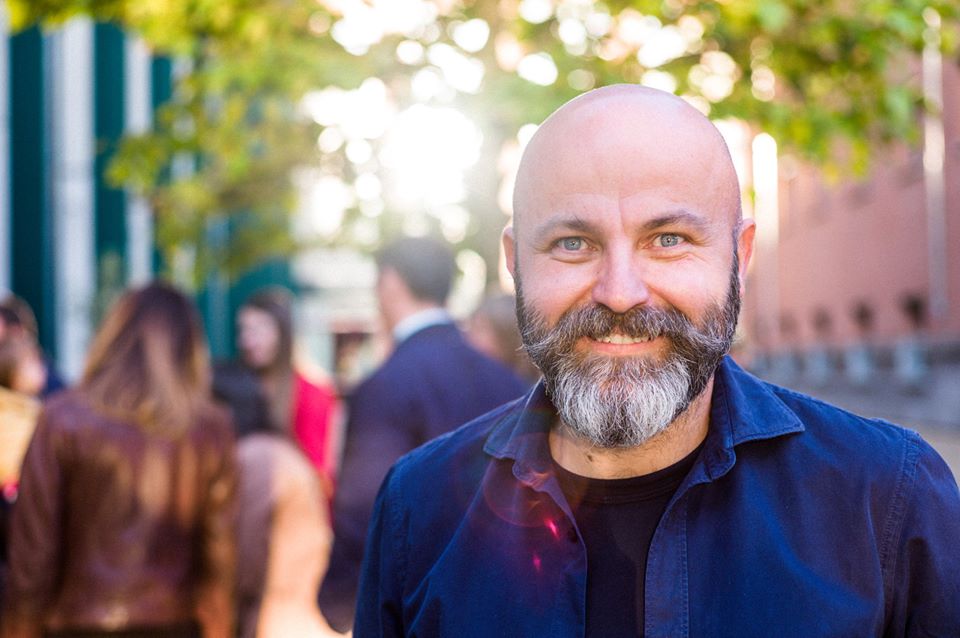
image source: Sergiu Negut Facebook
7. Name three apps that you have on your mobile right now and are the most useful to you.
I am not so addicted to apps. I believe we are all dependent on WhatsApp, where we exchange messages in private groups and workgroups.
I have grown very dependent on Zoom recently because it is the way to connect not only with family members we haven’t seen in years but also close family members which we all have during the lockdown, may they be 100 metres or five thousand kilometres away.
For the third place on my list of most-used apps, there is tough competition between several apps. One of the apps is the camera application because I enjoy taking photos and posting them on Instagram. Slack is another app I use because it is a good way to interact with people. LinkedIn allows me to keep in touch professionally with a number of clients, partners and former colleagues. I also have a number of banking and e-commerce applications, music and information organizers like Deepstash.
8. What fulfils you? What makes you happy?
This is a very tough question. I don’t really know honestly. I believe life in general and your professional life, in particular, is a continuous quest and pursuit of happiness as a famous documentary says.
First of all, I do seek a sort of success that comes from growth, ie growing businesses, growing people, nurturing circumstances where people develop and businesses grow, and this is important to me.
Secondly, I am a strong believer in freedom. It is important to me not only that I am free, but also to know that people around me don’t feel coerced to do things but to do them because they believe in them. This issue is necessarily addressed through truthfulness. Whenever I feel that freedom is under attack, and nonsense is replacing truthfulness, I step in and address the issue.
Thirdly, I believe in empathy or love. I believe in us caring for others, and building communities that are based on mutual respect, consideration, and care. And again, I believe it’s up to us to build in our small world, inside our circles, but also in society at large, a better society than the one we have inherited. And this can only be done with love and care, cooperation and truthfulness.
Join the Conversation
We’d love to hear what you have to say.
Get in touch with us on our LinkedIn Group, Facebook Group or Twitter.





